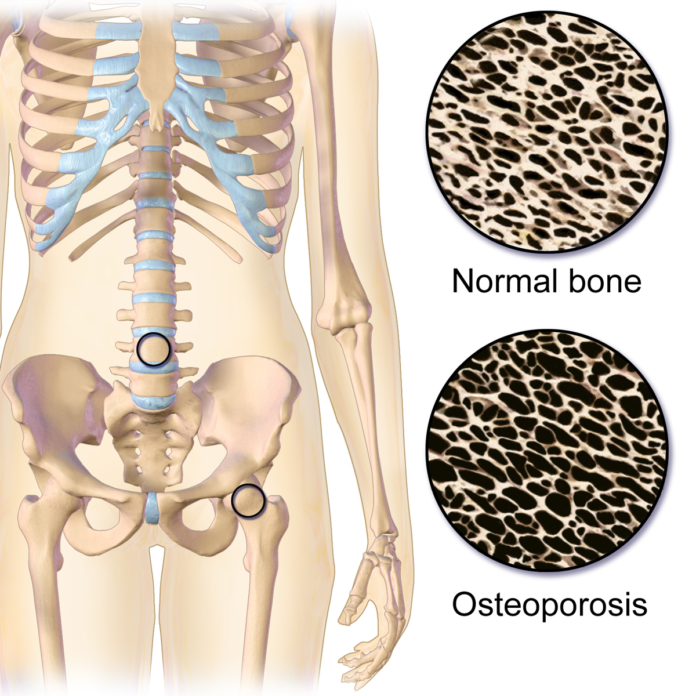New research reveals that both men and women benefit from osteoporosis drugs such as nitrogen-bisphosphonates
Two studies led by the Garvan Institute of Medical Research have revealed that nitrogen-bisphosphonates, drugs commonly prescribed for osteoporosis, reduced the risk of premature mortality by 34% in a cohort of over 6,000 individuals.
This reduction in early mortality risk was significantly associated with a reduction in bone loss compared with no treatment. The findings present new advice of the significant benefits of taking approved osteoporosis medicine for those at risk of osteoporosis, and their health care professional.
After the age of 50, 40% of women and 25% of men will sustain an osteoporotic fragility fracture in their life, an injury that puts them at risk of further fractures. However, currently fewer than 30% of women and 20% of men with fragility fractures are taking approved treatments for osteoporosis.
Osteoporosis affects around 200 million people worldwide, and is a progressive disease in which bones become more porous and fragile, often without symptoms until the first fracture occurs
“It’s a common misconception that osteoporosis affects only women, and many people choose to not take recommended treatments,” says Professor Jacqueline Center, who heads the Clinical Studies and Epidemiology laboratory at the Garvan Institute and is an Endocrinologist at St Vincent’s Hospital, who led the studies. “But osteoporotic fractures are not benign. Osteoporosis medication not only decreases the risk of further fractures – but it appears that this same medication also decreases mortality rates over the subsequent 15 years.”
Reduction in mortality risk
Osteoporosis affects around 200 million people worldwide, and is a progressive disease in which bones become more porous and fragile, often without symptoms until the first fracture occurs.
A Garvan-led team of international researchers analysed data from a cohort of 6,120 participants aged over 50, who took part in the observational Canadian Multicentre Osteoporosis Study.
The researchers also directly compared the nitrogen-bisphosphonates (alendronate or risedronate) with a weaker, non-nitrogen bisphosphonate and found a similar reduction in mortality risk benefit with the nitrogen-bisphosphonates.
The study provides additional evidence that nitrogen-bisphosphonate treatment can provide significant benefits for those with osteoporosis and is the first to examine potential mechanisms.
“For many individuals with osteoporosis, bone health isn’t front-of-mind,” says first author of both studies, Garvan’s Dr Dana Bliuc, Research Officer in the Clinical Studies and Epidemiology laboratory. “We hope our study results will encourage people with osteoporosis or at risk of a fracture to seek treatment – and commit to taking it.”


